|
By Anna Selk, Director of Curriculum & Instructional Services
As we prepare to enter another new school year, Benton Community has welcomed a new group of teachers to support our system in providing A Quality Education for a Lifetime of Learning. This year, Benton welcomed 22 new teachers. There are a variety of onboarding opportunities new staff engage in as they get started here. Teachers new to Benton spent time with Dr. Pam Ewell, Superintendent, and her office staff in learning about our district mission and vision and the logistics of getting started as a Bobcat. This time serves as a positive entry into the system with a wealth of information on the human resources components offered at Benton. Next, the teachers new to Benton were picked up on a school bus full of teacher leaders and administrators. We were able to have lunch together and then head out on a district-wide bus tour. The weather was beautiful for being outside and on a school bus. Teachers were able to visit about their summer, what’s going well in their lives, their children, and more. We were also able to discuss additional pieces that seem to be highlights throughout the year such as the Bobcat Homecoming and Veterans Day assembly. Based on the “buzz” on the bus, it was clear that the experience provided a great opportunity to enjoy meaningful conversation. This experience also provided all new teachers the opportunity to see where the students we serve live and know each of the communities that students come to us from. The goal of the bus tour was to create opportunities for meaningful connections amongst adults and support our adults in making those connections with the students they serve by knowing the communities they reside in. Other support offered to new teachers include one-on-one sessions with the district Instructional Coaches. These sessions provide new teachers with time and support in getting to know the curricular resources they’ll be using, grading practices, logistics in navigating the building, and more. New teachers have also had the opportunity to engage in summer learning sessions with other district teachers and received additional time to work in their classrooms and get acclimated to their new space. Many of these new teachers come with years of teaching experience. Those in their first or second years of teaching also receive coaching from an Induction Coach as part of the Grant Wood AEA Mentoring and Induction Consortium. We all work to make Benton Community A Place to Belong and hope that our new teachers feel this as much as our students will as they begin another new school year on August 23rd.
0 Comments
Hello Bobcats!
It is my hope that the summer months have provided you with rest, relaxation, and additional time to enjoy the people, places, and activities that bring you joy. As I prepare for the quickly approaching school year, I have spent some time reflecting and thinking about you and our students. The past two school years have been interesting, challenging, exciting, and growth-producing for me personally and professionally. The challenges of the last couple of years have taken a toll on everyone, but forward movement with an emphasis on love and support for one another is how we’ll all thrive. With that, I am filled with promise and excitement for the future. I am grateful for the opportunity to serve all Bobcats with a renewed focus on academic achievement across the district. Learning is the primary function of our organization. The ability to support students, staff, and families at a deeper level around topics related to academic progress and continuous improvement is exciting! Our district goals/action plan is pictured below. The goal areas are aligned with the district's mission and vision. They were developed based on a variety of data points that include student achievement, staff feedback, and community feedback. More information will be shared and feedback will be sought as the year gets started. Learning opportunities will be crafted for all around these goal areas. Together, we can achieve these goals and provide our students with a Quality Education for a Lifetime of Learning. It is my great pleasure to continue to serve Bobcats as Director of Curriculum & Instruction and supporting you in achieving these goals and serving students is my primary function. If you would like to discuss what I’ve shared individually or before the school year gets underway, please feel free to reach out at the contact information listed below. I am fortunate to live, work, and grow in a district where my personal core values align with the core values of the organization I care so deeply about. The overwhelming sense of pride that students, staff, and community members have in living life the “Bobcat Way” is truly special, and I feel fortunate to be a part of it as a parent, patron, and employee. I plan to continue to lead with both my head and my heart, and my heart lies in Bobcat Country. Benton Community truly is A Place to Belong. I look forward to serving you all and to continued opportunities to build and foster that belief and feeling throughout our system. With gratitude, Anna Selk [email protected] 319-228-8701 ext. 1512 Benton Community Central Office 304 1st St. Van Horne, IA 52346 Kim Fisher
PK-6 Curriculum & PD Leader & Instructional Coach Quality Education for a Lifetime of Learning In my role as Instructional Coach and PK-6 Curriculum and Professional Development Leader, I see how professional learning directly impacts our system to support the above mission statement. Professional learning takes many shapes in education. Two structures that we routinely use at Benton Community are:
Although the above list is not even close to extensive, our system both depends and thrives within these collaborative structures. We are in the business of people and just like any other business model, we need to continue to refine our craft. Collaborating with district staff around instructional needs and district goals allows us to continue to refine our craft and leverage the most effective teaching practices in our daily instruction. Our students deserve to have access to a quality education while they are at Benton Community. Earlier this week, I got to see a video of one of our Keystone Elementary students, AJ. AJ is engaging in At-Home Learning through Mrs. Neff's 4YO preschool class. He is supported by his preschool teacher Christine and a number of other GWAEA service providers including speech, OT, and PT. AJ's story is pretty remarkable. AJ is not yet able to walk independently but in the video, he was pedaling a tricycle. In the background, I could see his team supporting him by giving him a bit of a push, carrying his oxygen, and sharing encouraging words.
The video provided me with a renewing perspective, so I asked AJ's family to share the picture with you all. Challenges or barriers will always exist. The challenges and barriers we are experiencing today will be temporary as long as we keep pedaling. When we continue to pedal through them, the reward really is in the journey. Just keep pedaling. Thanks for all you are doing to keep pedaling and to care for those around you. Have a great week ahead and Go Bobcats! -Anna By: Kim Fisher - Instructional Coach, Benton Community
Our district chose to implement the data team process with our collaborative learning teams four years ago. I remember the initial unveiling of the process and being excited to have a structured protocol to guide my grade-level meetings. As we progressed through that first year of implementation, my excitement was replaced with a mixture of confusion and frustration on how this seemingly rigid process would impact our team and students. I was reminded many times that initial year (and for the next four years) to trust the process...luckily I accepted that advice. The data team process has impacted our district by empowering teachers to make evidence-based instructional decisions. I have had the privilege to see this transformation as a classroom teacher, a Data Team Leader, and now as an Instructional Coach. The data team process has conditioned our staff to collect and analyze student data to drive instruction. It has allowed us to build capacity within our staff by the in-depth analysis needed to match instructional strategies. This deep analysis has shown up in building meetings, planning of intervention groups, and everyday lesson planning. Our district has committed to this routine habit by protecting team time. Weekly, our teams meet in district-protected time to allow for personalized professional development to regularly occur. Here is an impact statement from a Data Team Leader who I have the opportunity to work with. “The data team process is so powerful! In the data team process, you are ensuring you are differentiating your instruction to meet the needs of all the students in your class. I have learned how to TRULY analyze data, and plan next steps to take students to the next level. You are collaborating with your team and sharing instructional strategies and looking for GROWTH! Teaching takes a village, and being in a data team gives you that support system to provide the best possible instruction for your students. You then reflect with your team on how the instructional strategies worked, and celebrate the amazing growth your students made.”--Katie Dirksen, Kindergarten Data Team Leader - Benton Community School District Key Action Steps for Implementation So, what did our district do to transform those first-year feelings of confusion and frustration to fourth-year routines and shared philosophy? A large contributor to our success within data teams is a trusting staff. That cannot be mentioned or celebrated enough in our profession. To find success within your district, I would encourage you to try these three action steps.
Disclaimer: If you are looking for resources, our data teams implementation has been influenced by: Allison, E., Besser, L., Campsen, L., Cordova, J., Doubeck, B., Gregg, L., … White, M. (2010). Data teams: the big picture. Englewood, CO: Leadership and Learning Center. Peery, A. B. (2011). The data teams experience: a guide for effective meetings. Englewood, CO: Lead Learn Press. At the BCEdCamp event held this past summer, a suggestion was made during the podcast session to meet virtually and reconnect around the themes of the day, implementation of ideas, new and exciting work occurring in different districts, questions, etc. We are excited to host that virtual meeting on January 9, 2020, from 3:30-4:30. We also plan to discuss the feedback we received on the upcoming BCEdCamp event for June 2020. The details and Zoom link is below. Resources, notes, links, and more from the previous BCEdCamps can be found here.
Please feel free to share with anyone interested. Help us spread the word in your districts and with your PLNs. There is no need to have participated in BCEdCamp to participate in this virtual session. We look forward to collaborating and learning with you! Personalized learning is an approach within our profession that excites, motivates, and even sometimes overwhelms teachers charged with implementing practices. Personalized learning has been developed and tailored to the local contexts in a variety of ways throughout the state. In order to support a customized approach to educating youth, teachers need a reflective partner, guide-on-the-side, and advocate. Instructional Coaches serving in districts throughout the state support personalized learning by serving teachers in these capacities. Below are perspectives on supporting personalized learning from Instructional Coaches at Benton Community. They speak to how they support personalized learning for teachers and with teachers for students.
Personalized Learning for Teachers: Personalized learning for teachers starts by having a conversation with the teacher or a team to decide what they want their learning to be. Once this is decided, then I look for resources to help guide them in their work towards their goal. I help teachers look at their data and assist them where they feel they need the most help.
When I am working with teams, I always make sure that I ask the teachers what their personal learning outcome is, in addition to their team goal. If I know both, I can try to connect the team with one another to model or share what they are doing to impact their students. When I'm working with an individual, it is again goal-based. I also try to see how and when they are going to apply their learning to their instruction, which is a great entry point for me as the coach to observe/script for them, etc.
Personalized learning can take shape in many different forms. As an Instructional Coach, it is my goal to be the connector to support movement within the goal that is personal. This connection piece might entail reflective conversation to ask questions or gain another's insight, it might mean finding resources related to the goal area to further our knowledge base, it might charge me with the task to model a strategy or co-teach with a teacher, it might be collaborative planning and/or analyzing student data. Supporting personalized learning really is the essence of my job. Being the connector is where the art of coaching occurs.
Personalized Learning with Teachers for Students: When I think of personalized learning I think about data-driven decision making, flexible content, targeted instruction, and student reflection. In coaching cycles, I work on many of these aspects daily. In our data team work, all teachers work to make data-driven decisions. In student-centered coaching cycles, we focus on data-driven decision making. I am working in a coaching cycle with a teacher right now where we are working on developing individual learning plans for students that target instructional steps using a combination of technology and individual instruction. Any time we help teachers focus instruction to address individual student needs, we are personalizing learning. By using technology, we are helping teachers make content flexible for students. Students can now focus their learning on areas that interest them by using technology to access information. In addition, technology allows teachers to receive individual responses to check for understanding. These individual responses help us personalize learning. When I know where each student is in their understanding, I can target my instruction. Finally, I have also worked with my own students in Spanish class to focus on individual reflection. When I ask students to journal on questions that make them reflect on their learning, I am personalizing learning.
As the "OG" on our instructional coaching team at Benton Community, I have often wondered how I would have responded as a teacher in the classroom when the teacher leadership program rolled out in Iowa. Although I was willing to jump in with both feet to try out this new job of instructional coaching, I hypothesized that I might have been a little less than receptive to working with a coach. This hesitation has nothing to do with not wanting to collaborate, but instead, I think it would have been seeded in not knowing what to do with a coach. Five years later, I find myself back in the classroom teaching one section of Exploratory Spanish and so excited to collaborate with my co-worker. I have so many ideas of how I can use my instructional coach.
As I rolled out my first exploratory Spanish class, I really needed a reflective partner. My instructional coach was there to reflect with me over the ideas of what I wanted my 30-day course to include and all the ideas I had for my students. Like always, I had way more than 30 days worth of material; my instructional coach helped me narrow my focus to determine what to keep and what to let go. My instructional coach was there to help me think about how to set up my gradebook, my learning management system, and my communication home to parents. All of these conversations happened naturally when I was ready to receive her advice. Many were quick conversations before, after class or school that left me thinking and reflecting more at home to help me determine my next best move. As the first 30 days rolled out, I found myself wanting to try new ideas, but in all honesty, I was nervous about implementing. I found several technology tools over the past five years that I felt could help my students. I just needed a little encouragement and there again was my instructional coach. Willing to lend a helping hand and give me the encouragement I needed to make the leap, my instructional coach came into the classroom to support my next moves. She joined a small group to help support and then provided technology support during another lesson. Each time she helped in the classroom, she made me feel more comfortable and confident in the classroom. Finally, my instructional coach was a supportive accountability partner. When I told her something I wanted to try or something I was struggling with in the classroom, she would check back in with me to see how things were going. Did I implement the new seating chart? How was the Spain research project? How are you planning to end your course? All of these questions followed up on something I said I was going to do. When she checked back in, she reminded me of what I said I wanted to do. If I gave it a try, I could share my success or my next steps. If I didn't, it reminded me of my intentions and often encouraged me to think about it again. All this was done with a supportive tone that reminded me that I was not alone. I will never know how I would have responded to instructional coaching, but now I will never be at a loss for what I could do with an instructional coach. Feeling the support and encouragement reminded me of the importance of teacher efficacy. A teacher's level of confidence about their own abilities greatly impacts student achievement. For me, having the support of an instructional coach was the added confidence I needed to help me impact my students. - Laurie It has been a long time since I was a freshman in high school. This was before cell phones were in everyone’s pocket, prior to social media being a mode of communication and connection, and before any of us imagined taking notes on anything put a spiral or loose-leaf. I had a very positive high school experience and was excited to get to know more about what it is like to walk the halls, sit in classrooms, and operate as a student in our high school today.
As part of continuous improvement work, Benton Community Middle School/High School is participating in a self-study with Grant Wood AEA and The Highlander Institute. One step of the self-study was to have all administrators spend a day shadowing a student in our secondary building. Collectively, we shadowed a total of five students in the building ranging in age from 8th to 12th grades. I knew in order to really learn from the experience, I needed to fully commit to being a student on my shadow day. I spent the day in jeans and Bobcat gear, followed the bell schedule, sat in desks, used learning management systems, and did all other things that are part of being a freshman student at Benton Community in 2019. The Student Shadow Challenge resources from School Retool provided me with excellent materials to prepare for the experience and really think about the mindset I needed to be in to have a positive learning experience. As I prepared, I thought about what I wanted to know or learn about being a freshman in 2019, it was mainly focused on the experience as a whole. I knew I was going to need to monitor my feelings, actions, words, and questions. I realized I was going to have to be intentional about ensuring this day was focused on life as a student and not about observing teachers are providing adults feedback on instruction. As I reflect on why the experience made such a profound impact on my thoughts and perspective as a leader, I’m drawn to something Professor John Hattie said in a conversation we had a short time ago. “Sometimes administrators need to stop and smell the roses.” As he was saying this, I reflected on my own tendencies and the balance between affirmation and next step feedback. Prior to the student shadow experience, our administrative team did just what Professor Hattie suggested. We went on a “Love Walk” around our building and stopped in so many areas of the building to discuss points of pride. These include topics related to instruction, facilities, projects, student achievement, community relations, and more. What I knew prior to the experiences is that the one big thing that makes our school community so special: the people. By stopping, I was reminded of all of the little things that make our school community a place to belong. I challenge other lead learners to participate in a student shadow experience. Consider the prompts and questions below when deciding who to follow and preparing for your day.
-Anna Recently the Benton Community Instructional Coach team was invited to listen to author, Alisa Simeral, speak at Vinton-Shellsburg on instructional coaching. Along with Benton Community and Vinton-Shellsburg, Center Point-Urbana and Monticello instructional coaches were in attendance. Many thanks to Vinton-Shellsburg for inviting us to join! It was a great morning of processing new learning, refining current practices, and networking with other districts. As we left to return to our buildings, there were so many reflections that each of us had. I was lucky enough this summer to get to read Simeral’s book that she wrote with Pete Hall, Teach, Reflect, Learn as part of our summer learning options. Having both experiences with Simeral’s work I was really excited to write this blog post as combined reflection.
For those of you not familiar with Simeral’s work, she is a consultant (amongst other roles) for schools to help teachers, coaches, administrators, etc. build strong reflective habits. These habits will build capacity for systems to thrive as they reach the student level through teacher actions and mindsets. The major take-aways that I had from Simeral’s presentation was that, as coaches, we can change behaviors; but if we don’t change mindsets, we aren’t building maximum capacity for change in our system. When I am working with a teacher or a team of teachers, I try to get them talking so I can start to understand how they process, plan, reflect, and assess. Simeral said it best when she explains that we really need to “listen to the teacher’s questions because that is what drives their thinking”. This was a powerful thought for me because it is 100% right. When I am engaged in a coaching cycle, I try to have open discourse to get the teacher to process verbally. Through that conversation I can gain clarity on their belief system. This clarity is important to really dive deep into our coaching relationship. I am not coaching to give activities or classroom management suggestions. I am coaching for metacognition! With those thoughts, how can the BCTLT meet your needs as a teacher? Let’s start that work today! -Kim |
Blog Posts Written By:Larry Carlson Archives
August 2022
Categories |

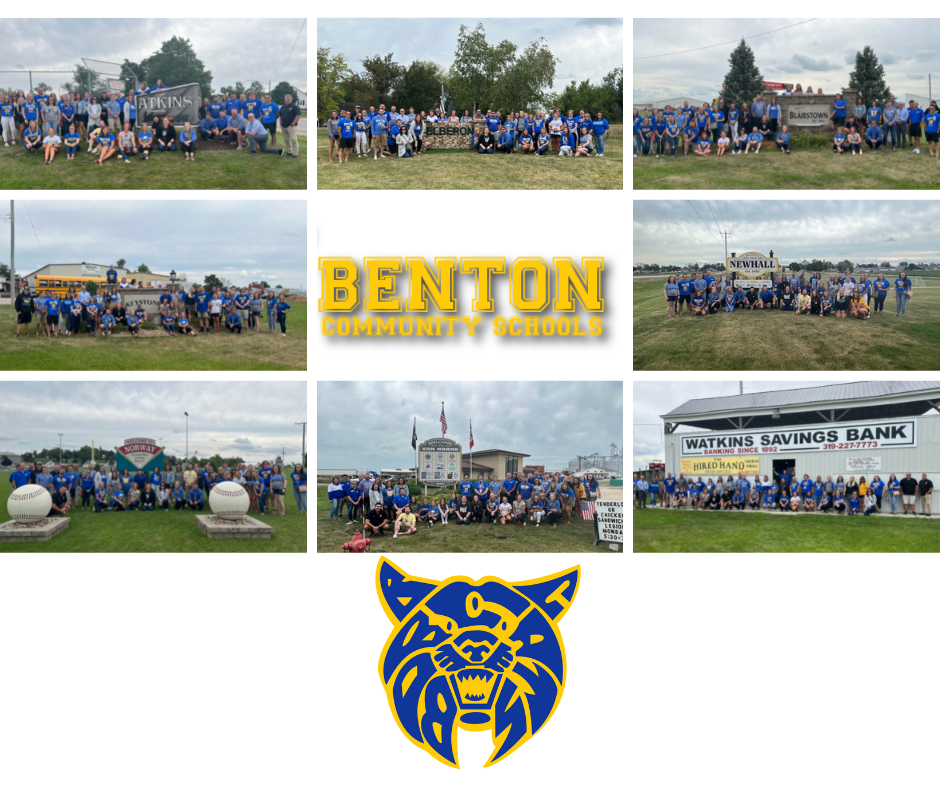
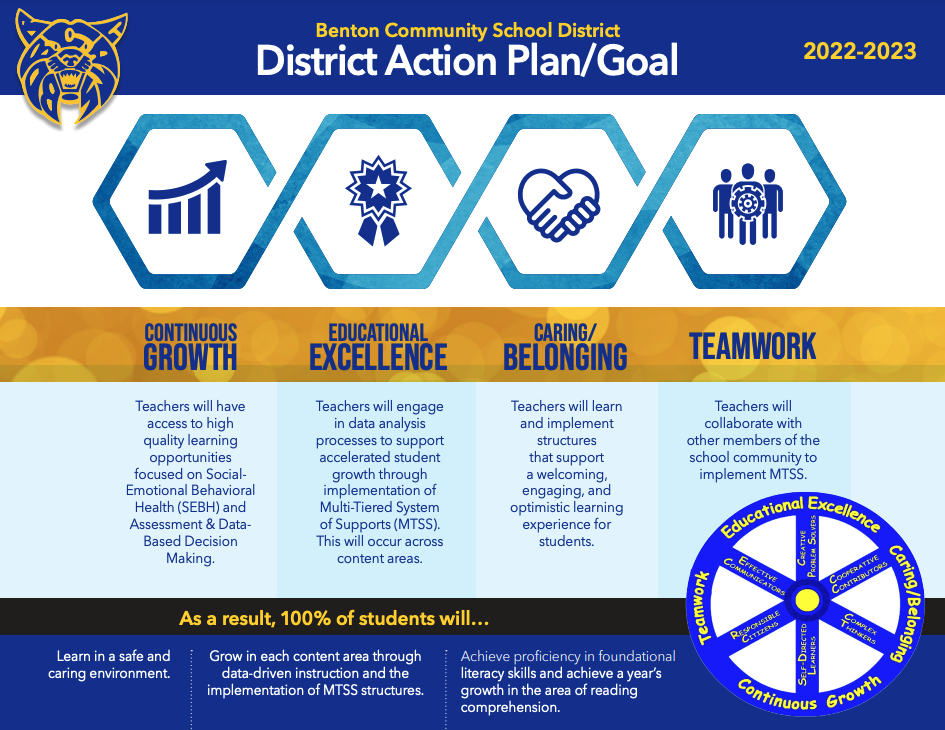
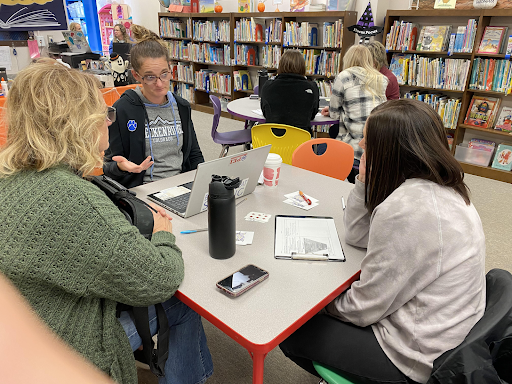
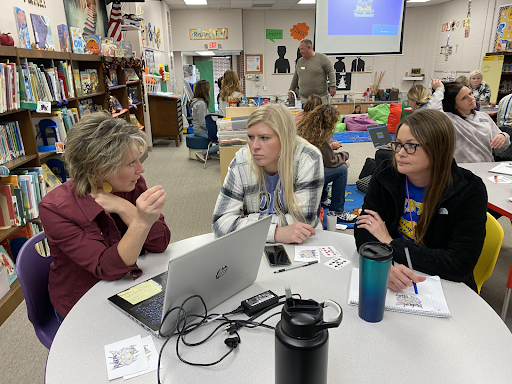
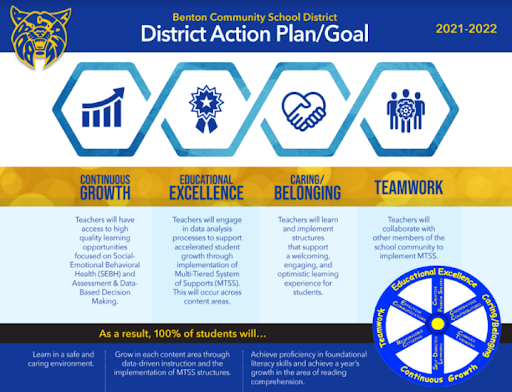
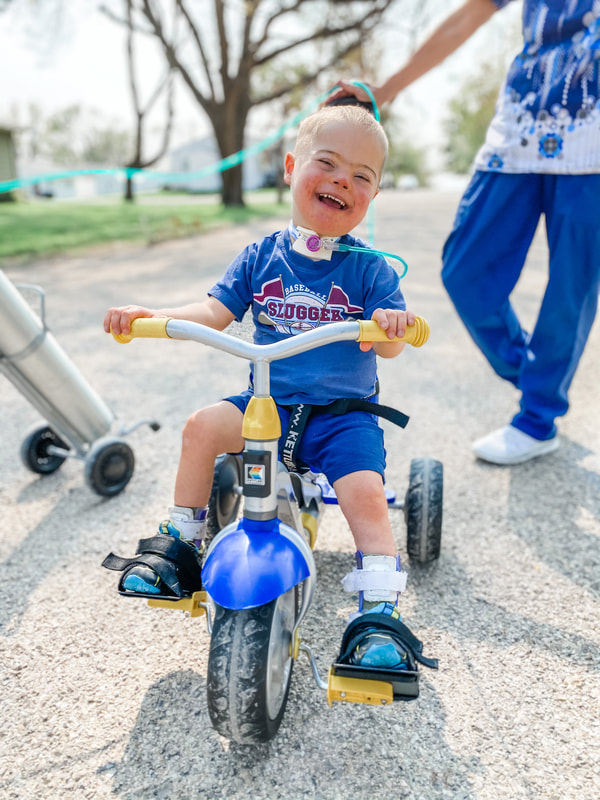
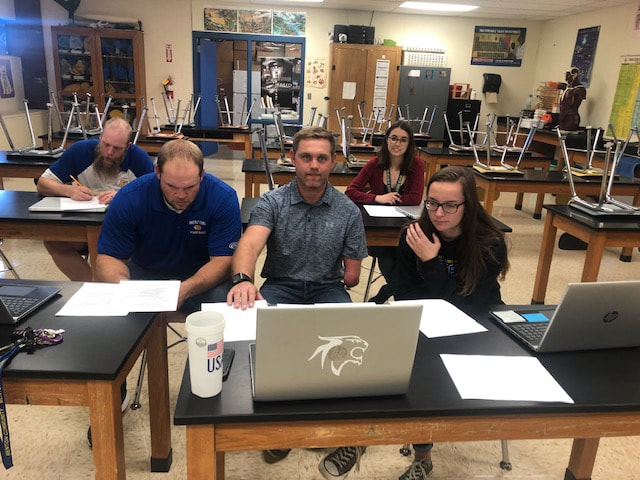
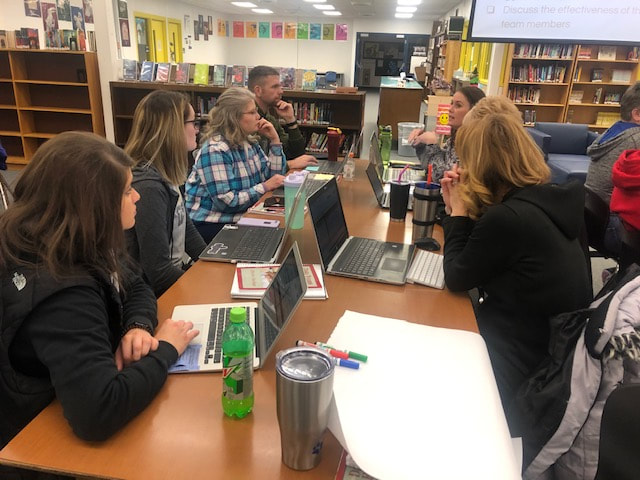
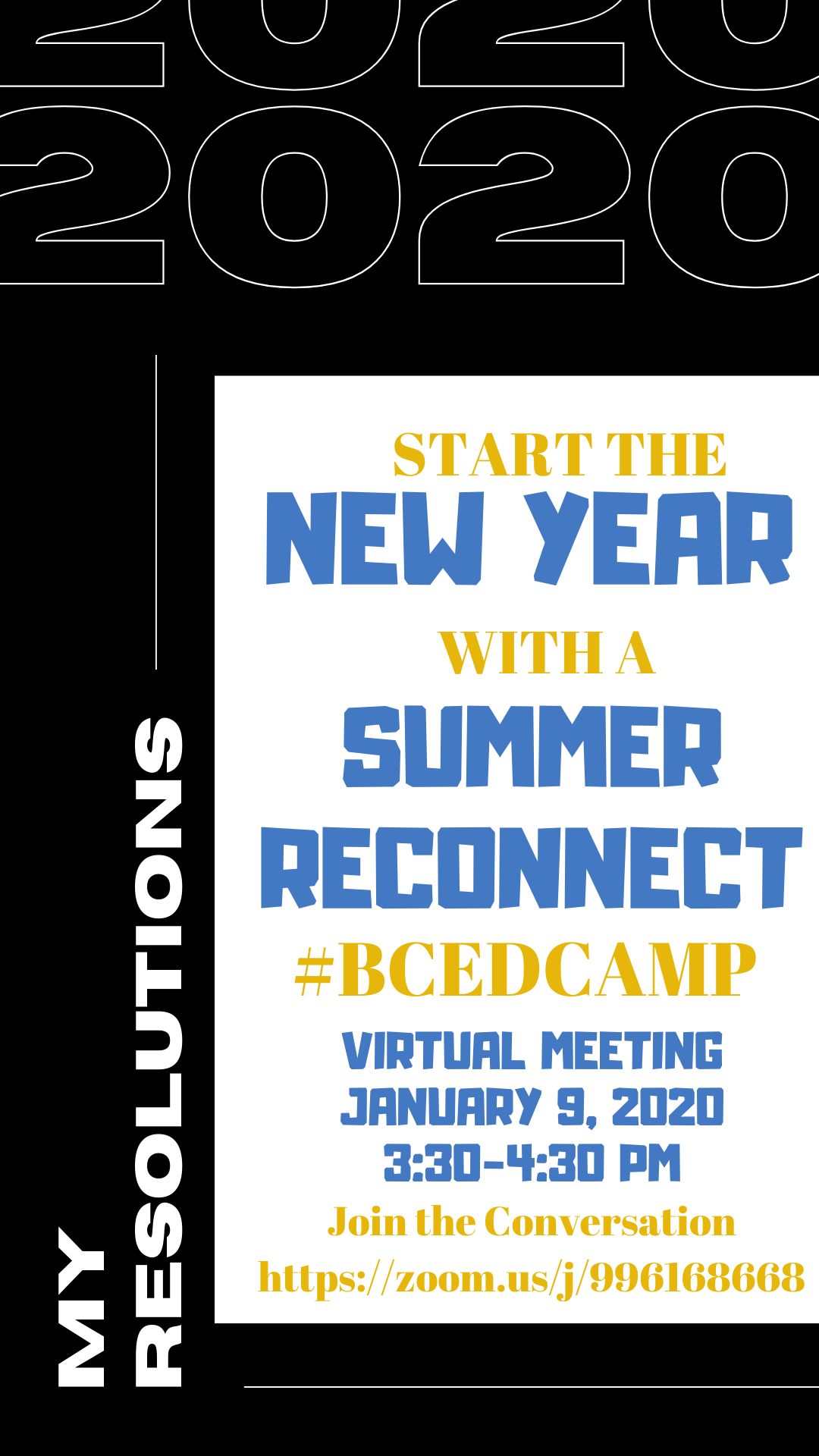
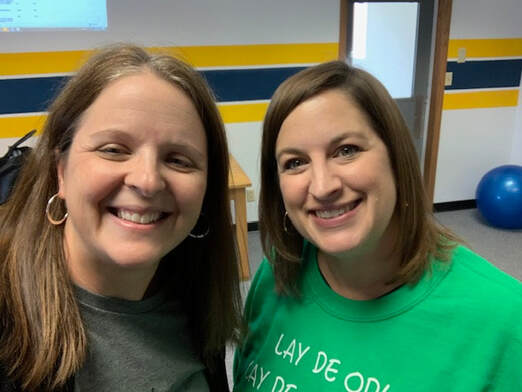
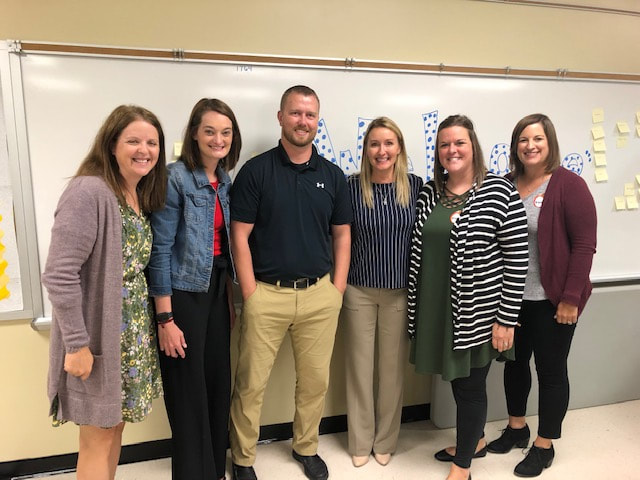
 RSS Feed
RSS Feed
